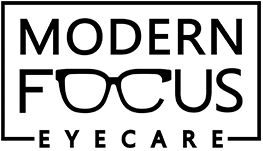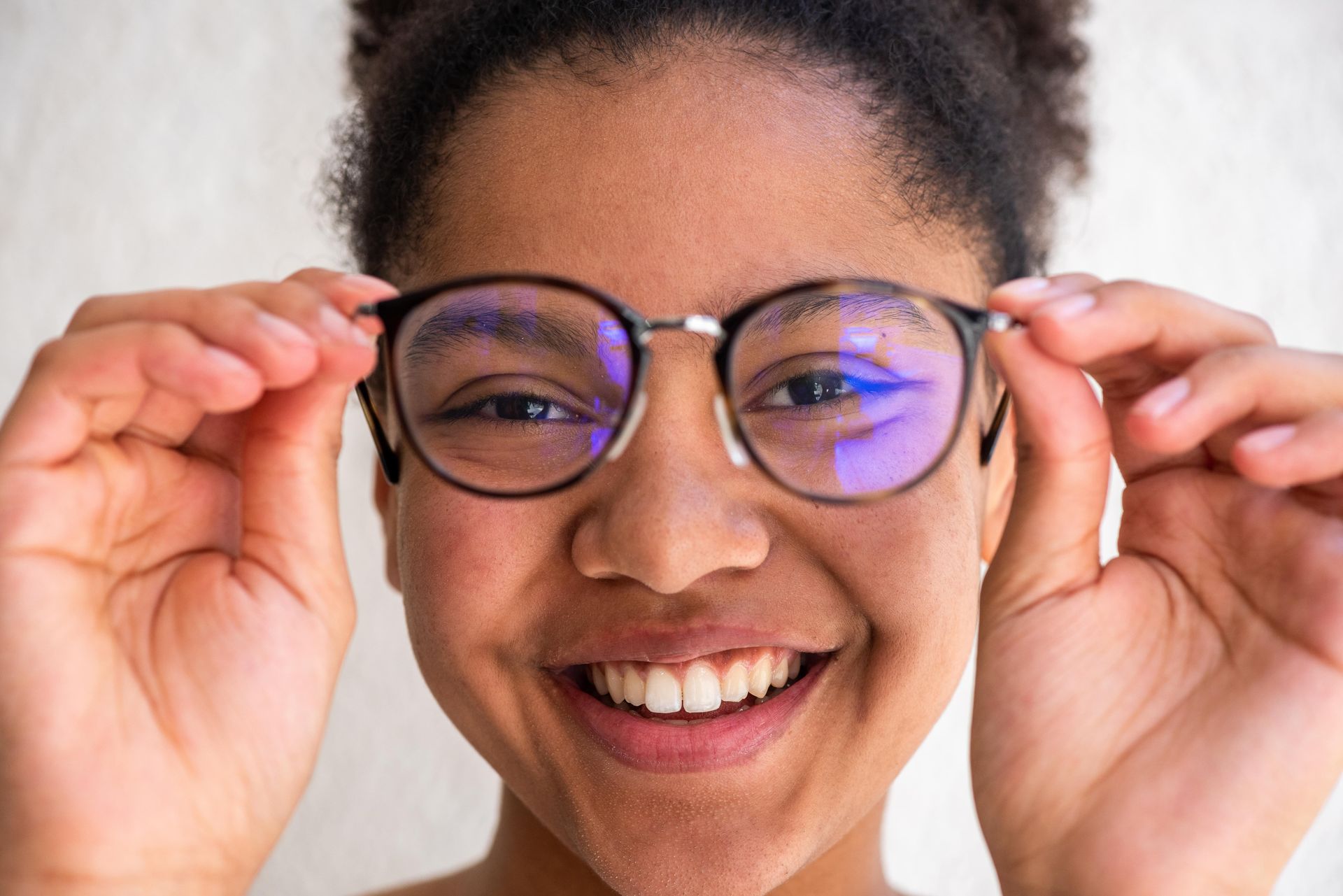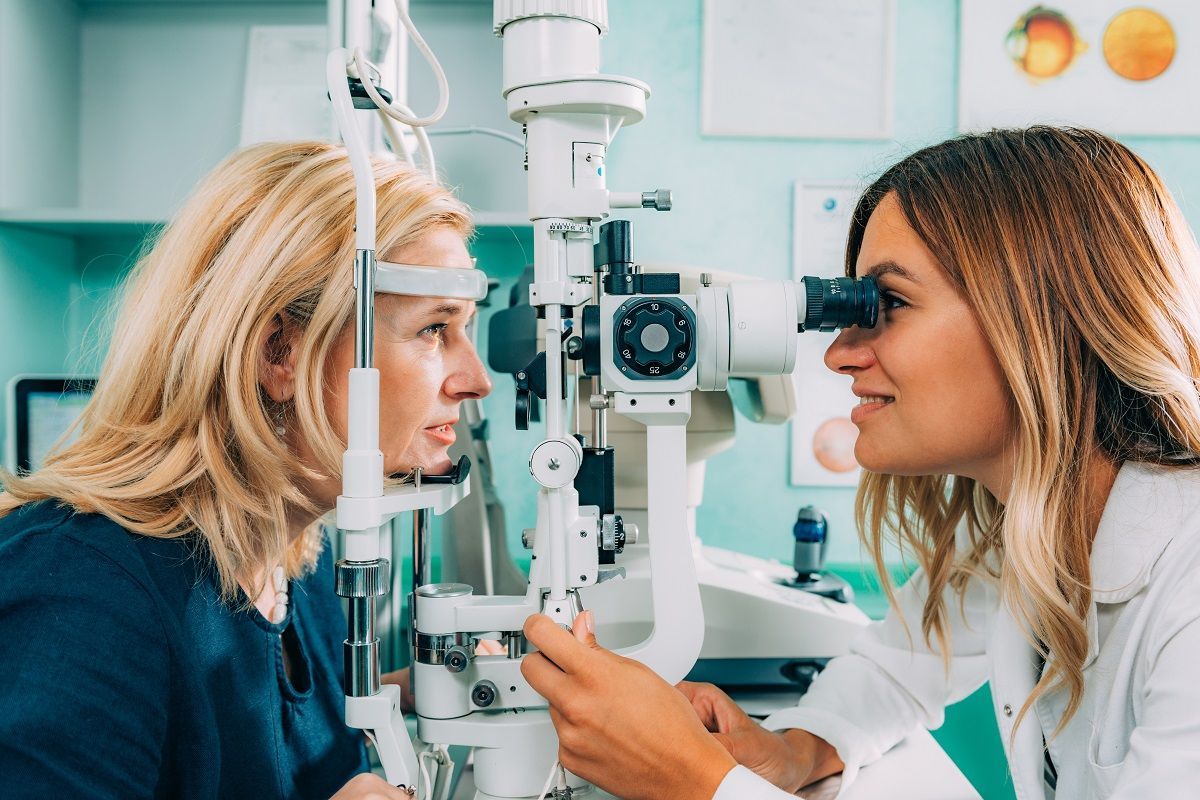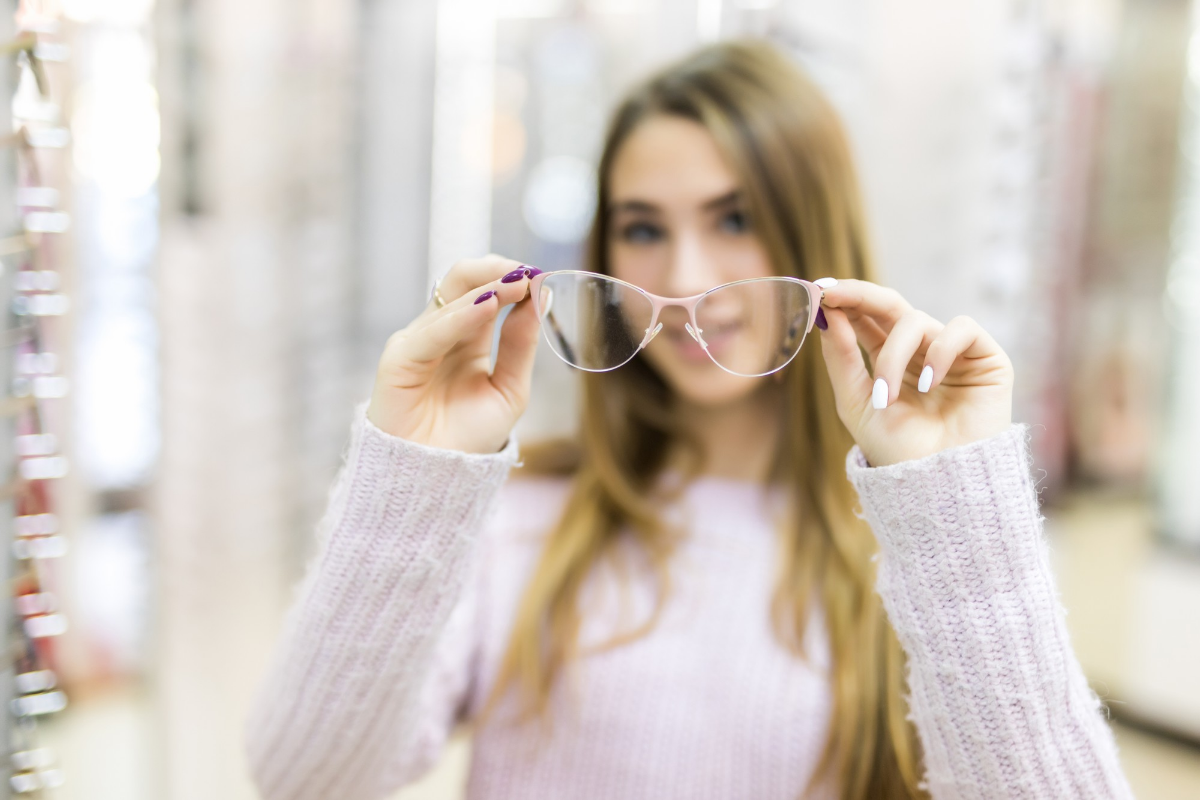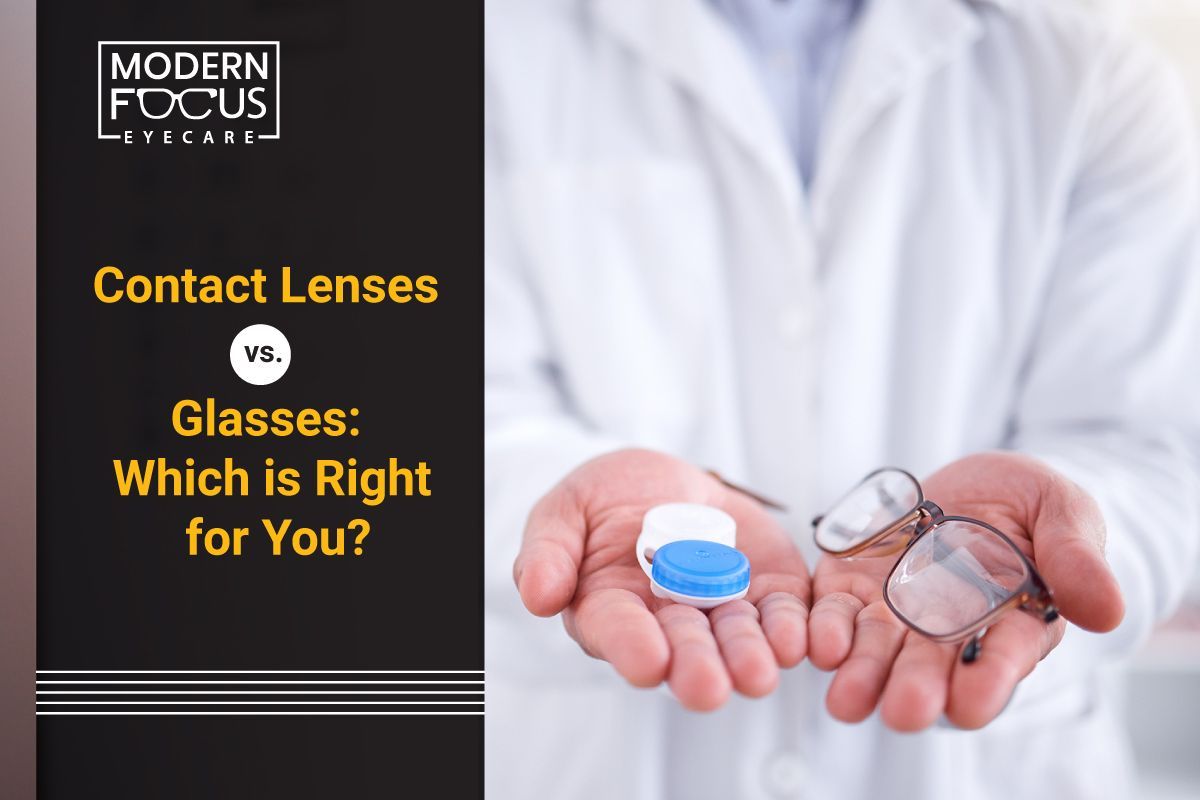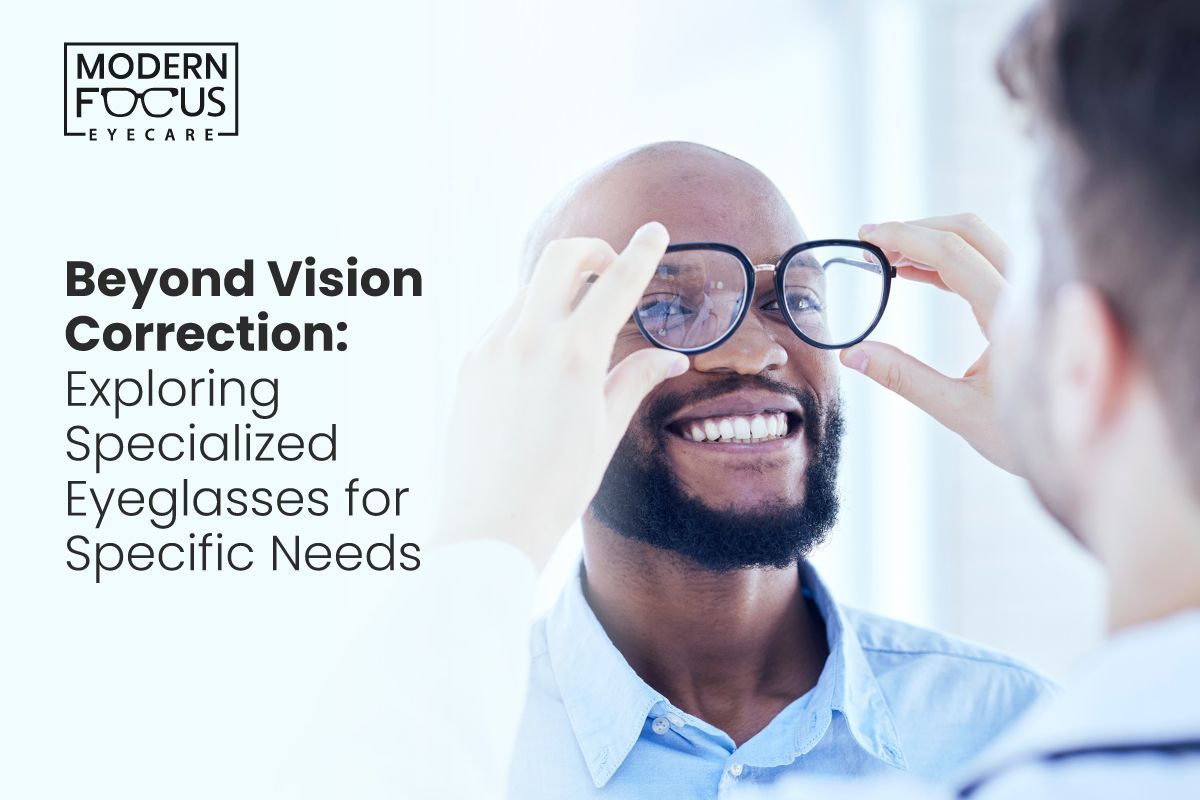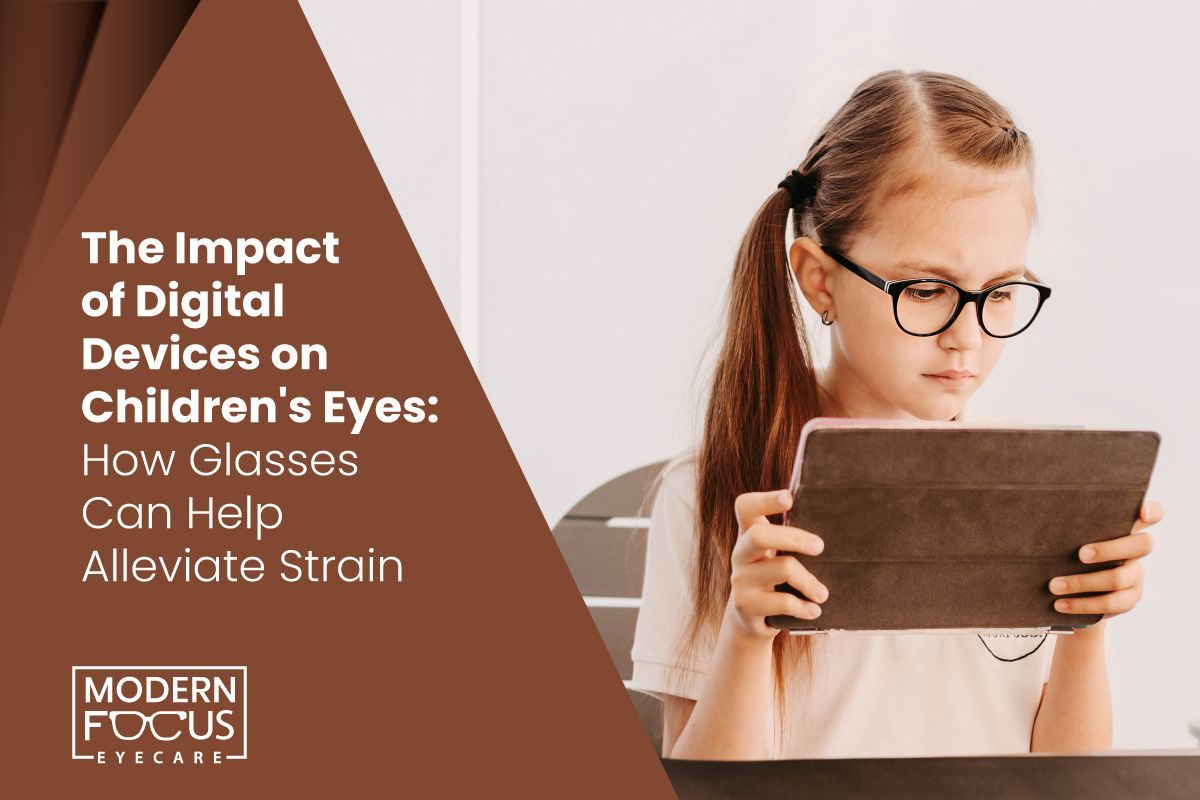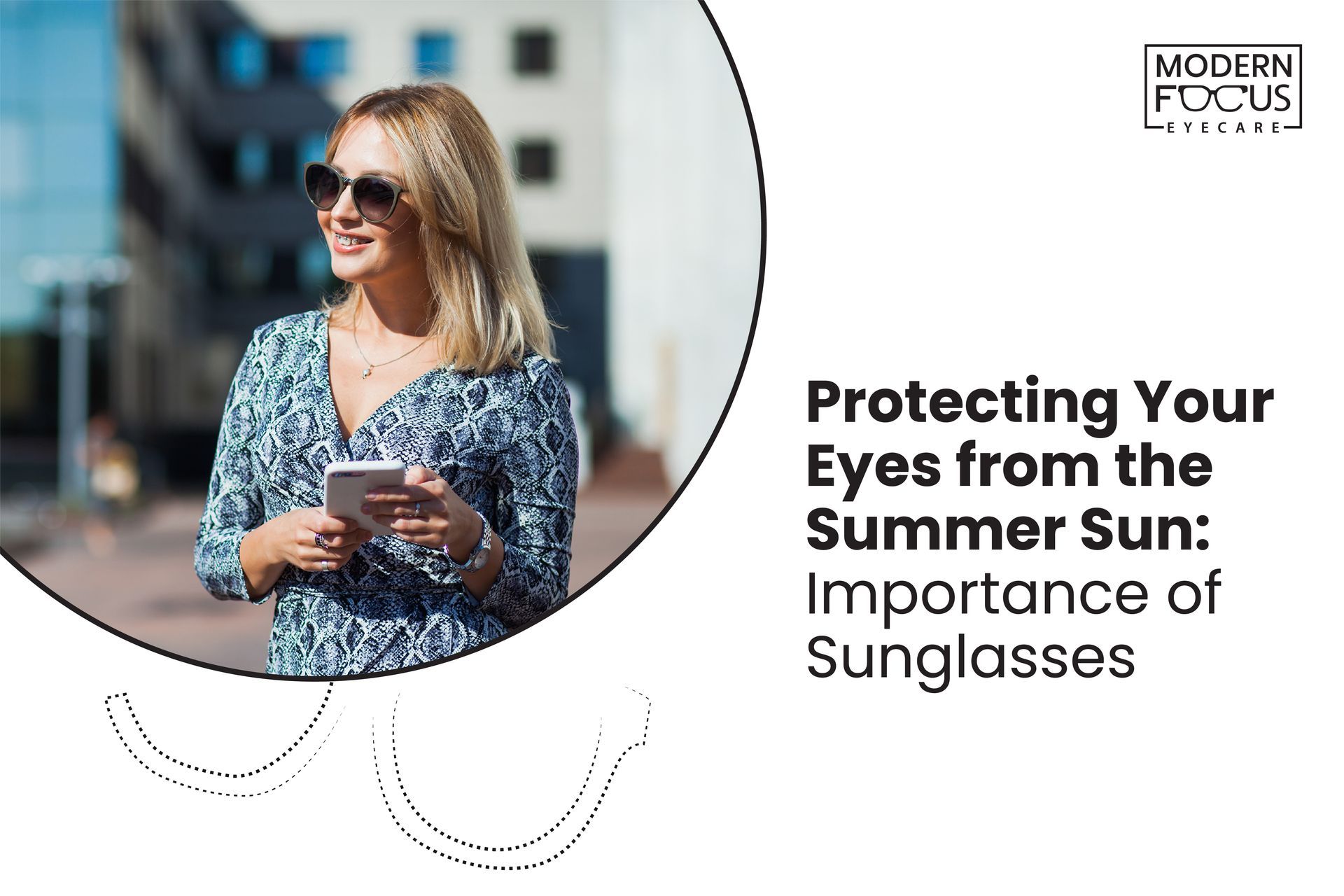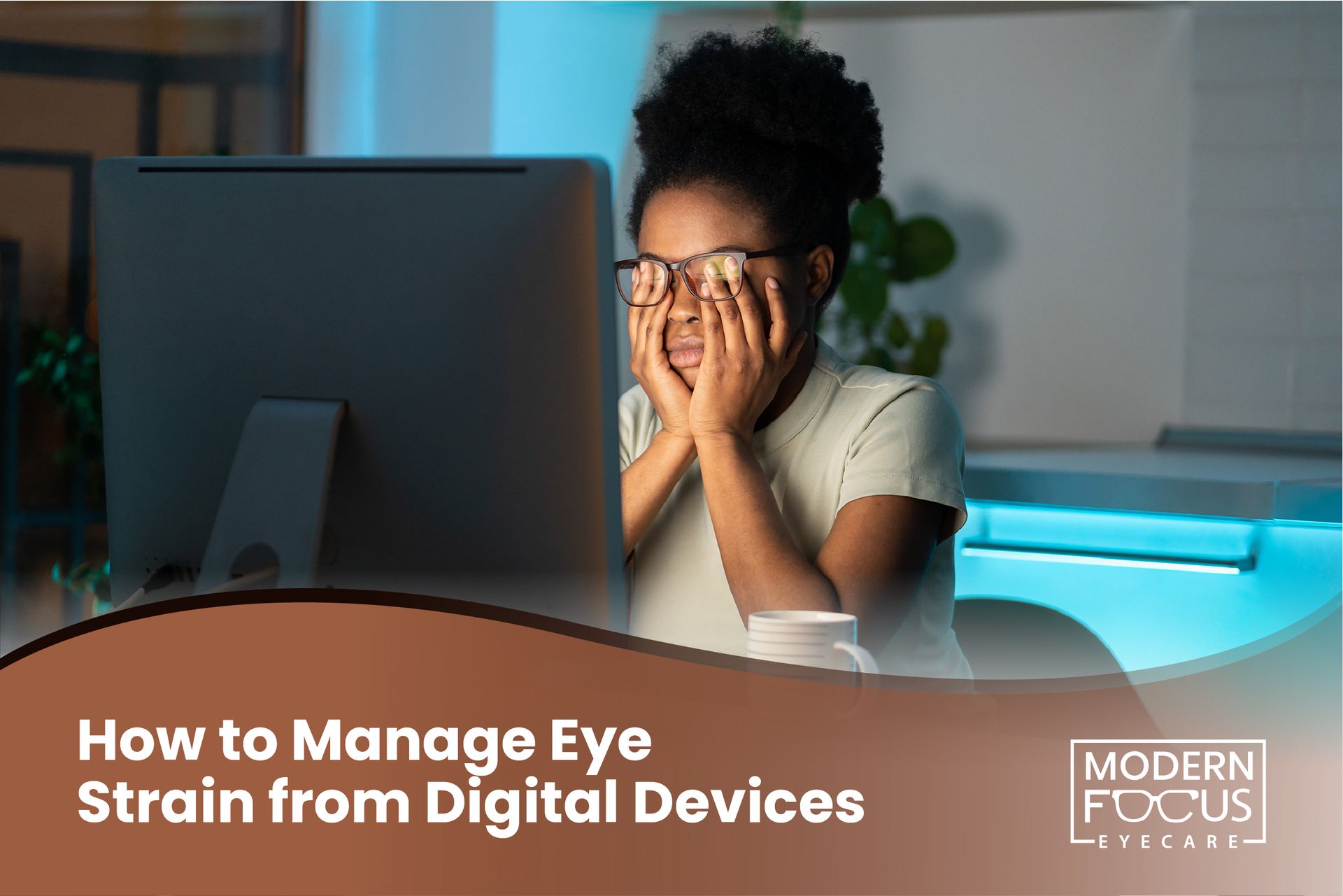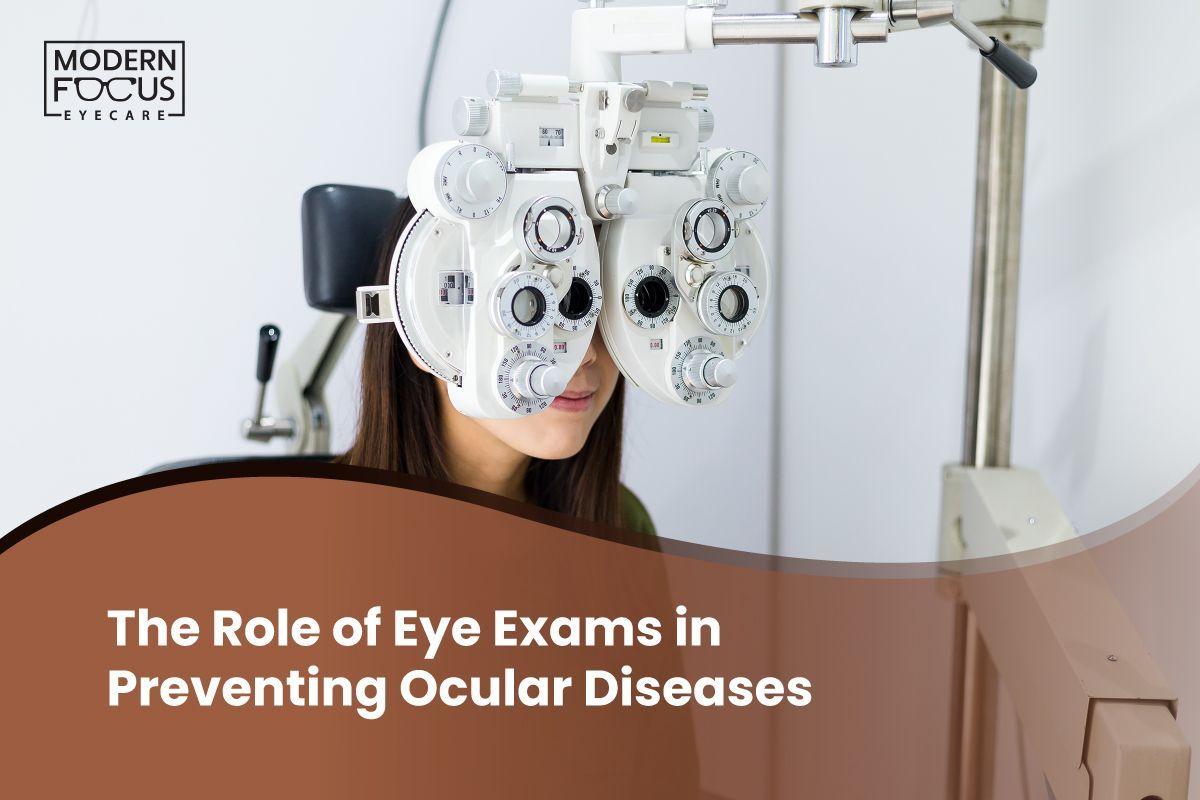The Ultimate Guide to Dry Eyes: Causes, Symptoms, and Treatments
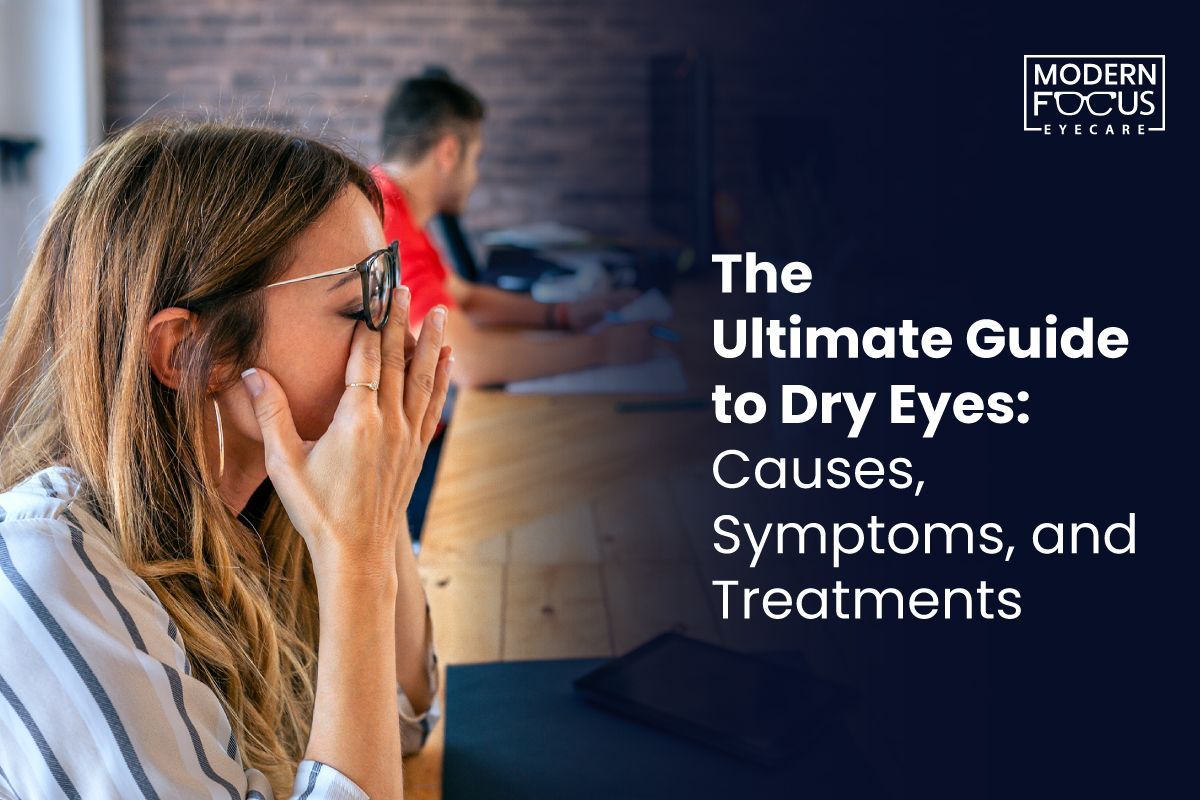
Dry eyes are a common condition that causes discomfort and irritation and even affects vision. Whether you're dealing with occasional eye dryness or a chronic disease, it's essential to understand the types of dry eye causes, symptoms, and treatments available to help relieve your symptoms and improve your overall eye health.
If you are experiencing the discomfort of dry eyes, this article is perfect for you. We'll discuss the causes of dry eyes, their symptoms, treatments, and management tips. So, without further ado, let's dive into the ultimate guide to dry eyes.
What Are the Causes of Dry Eyes?
What is dry eye? There are many reasons why you may experience dry eyes. One of the most common is a lack of tears to lubricate the eyes. Tears are essential to keeping your eyes lubricated and healthy. Still, dryness can occur when they're not produced sufficiently or are of poor quality.
Other common causes of dry eyes include:
Aging
As you age, your tear production naturally decreases, which can lead to dryness. Aging is one of the reasons why older adults experience dry eye syndrome.
Medical Conditions
Certain conditions, such as diabetes, thyroid disorders, and autoimmune diseases, can affect tear production and lead to dry eyes.
Medications
Medications like antihistamines, decongestants, and antidepressants, can cause dryness as a side effect.
Environmental Factors
Dry air, wind, and smoke exposure can contribute to dry, itchy eyes.
Eye Surgery
Some eye surgery, like LASIK, can cause temporary dryness. During the surgery, a small flap is created on the cornea's surface to access the underlying tissue. This flap is lifted, and the cornea is reshaped using a laser. After the procedure, the flap is replaced and left to heal.
This healing process can cause temporary nerve changes that control tear production. It decreases tear production and increases the evaporation of tears from the eye's surface. This can result in dry eyes. The good news is it improves your vision after the temporary dryness.
How Do I Prevent Dry Eyes?
Dry eyes can be prevented by taking several measures. One of the simplest ways is to blink while working on a computer or reading, especially for prolonged periods. It is also essential to avoid exposure to dry air, wind, and smoke. Moreover, drinking water and avoiding excessive caffeine and alcohol consumption can help prevent dry eyes.
Finally, artificial tears or lubricating eye drops can help keep the eyes moist and to avoid dryness. Therefore, it is essential to follow proper eye hygiene practices, such as washing hands before touching the eyes and avoiding sharing personal items like towels and eye makeup.
What Are the Symptoms of Dry Eyes?
Dry eyes can cause various symptoms, from mild irritation to severe discomfort. Here are some of the most common indications and symptoms of chronic dry eyes:
- Dryness or grittiness in the eyes
- Burning or stinging sensation
- Redness
- Blurry vision
- Sensitivity to light
- Difficulty wearing contact lenses
- Excessive tearing
If you're experiencing these symptoms, you must talk to your eye doctor or
optometrist to determine the cause and find the proper treatment and management.
What Are the Treatments for Dry Eyes?
What is the best dry eye treatment? There are several treatments available to help relieve the symptoms of dry eyes. The proper remedy for you will depend on the cause and severity of your condition.
Some common treatments for dry eyes include:
- Artificial tears: Over-the-counter eye drops can help lubricate your eyes and relieve dryness.
- Prescription eye drops: If over-the-counter drops aren't effective, your eye doctor may recommend medicated eye drops to help increase tear production or improve the quality of your tears.
- Punctal plugs: These tiny devices are inserted into the tear ducts to help keep tears from draining away too quickly.
- Lifestyle changes: Making changes to your environment, such as using a humidifier or avoiding smoke and wind, can help reduce the symptoms of dry eyes.
- Surgery: In severe cases, surgery may be necessary to help increase tear production or improve tear quality.
Working with your doctor or optometrist to determine the best treatment for your condition is essential. They can help you understand the benefits and risks of each option and find the right solution to improve your eye health. Your eye doctor can tell you how to cure dry eyes using the appropriate methods.
What Are the Best Tips for Managing Dry Eyes?
In addition to medical treatments, there are several steps you can take to manage the symptoms of dry eyes and improve your eye health. Below are some of the best tips you can try to get rid of dry eyes.
- Blink frequently: Remember to blink often, especially when using a computer or other digital devices.
- Take regular breaks: Take frequent breaks when reading or using a computer to give your eyes a rest.
- Use proper lighting: Ensure your workspace is well-lit to reduce eye strain.
- Wear sunglasses: Protect your eyes from the ultraviolet rays of the sun and wind when you're outside.
- Stay hydrated: Drinking lots of H2O can help keep your body hydrated and improve tear production.
- Avoid smoke: Exposure to smoke from cigarettes or other sources can worsen dry eyes.
- Maintain a healthy diet: A diet rich in omega-3 fatty acids, like salmon and other fatty fish, can help improve tear quality.
What Are the Ideal Foods That Can Keep Your Eyes Healthy?
Your eyes play a significant role in your life. It allows you to see and experience the world around you. Moreover, your eyes need proper nourishment to stay healthy and function at their best.
You must include many fruits and vegetables in your diet to keep your eyes in tip-top condition. These foods contain vitamins, minerals, and antioxidants that help protect your eyes from damage and keep them healthy.
Here are some ideal fruits and vegetables for healthy eyes to include in your diet.
Leafy Greens
Leafy greens, like spinach, kale, and collard greens, are rich in lutein and zeaxanthin. These are antioxidants that are essential for maintaining healthy vision. They help protect your eyes from harmful UV rays and prevent macular degeneration.
Carrots
Carrots are rich in beta-carotene, and vitamin A. These vitamins are crucial for healthy vision. Vitamin A helps protect the eye's surface and reduces the risks of dryness, leading to irritation and other eye problems.
Berries
Blueberries, strawberries, and raspberries contain antioxidants that help protect your eyes. They keep your eyes resilient against free radicals that may cause damage.
Citrus Fruits
Oranges and grapefruits are high in vitamin C. It is essential for maintaining healthy blood vessels in the eyes. Vitamin C also helps protect your eyes from age-related macular degeneration and cataracts.
Omega-3s are fatty acids that play a crucial role in maintaining healthy vision and preventing eye diseases. Here are some examples of the best sources of omega-3 fatty acids:
Fatty Fish
Fish like tuna, salmon, and sardines are good sources of omega-3 fatty acids. They help reduce inflammation in the eyes and prevent dry eyes.
Nuts and Seeds
Flaxseeds, walnuts, and chia seeds are rich in omega-3s. These foods can help improve the quality of your tears, preventing dry eyes and reducing the risk of eye infections.
Finally, limiting your intake of processed and high-sugar foods is essential, as these can lead to inflammation and other health problems that can affect your eyes.
In conclusion, the ideal foods to keep your eyes healthy are those rich in vitamins, minerals, antioxidants, and omega-3 fatty acids. Including these foods in your meals can help protect your eyes from damage and prevent eye diseases such as macular degeneration and cataracts.
So next time you're at the grocery store, load up on leafy greens, citrus fruits, fatty fish, and other healthy foods that will keep your eyes in shape!
Improve Your Vision and Live A Brighter Future
Modern Focus Eyecare is here for you if you are experiencing the challenges and discomfort of dry eyes. We aim to provide the treatment for your condition that you deserve.
We provide eye exams to assess if you need glasses, contact lenses, or a new vision prescription to combat dry eyes. Additionally, our board-certified optometrists can give you the utmost care for properly managing dry, itchy eyes. Let's talk about your eye health today.
Call us at
(972) 617-800.
If you have any questions, schedule an appointment
With Our Eye Doctor or Call Us At (972) 617-8000
Modern Focus is your one-stop Eyecare Center in Texas. We have a team of highly-experienced optometrists to examine, diagnose, treat, and manage diseases, injuries.
Useful Links
Our Eye Services
Copyright © 2021 Modern Focus. All rights reserved.

